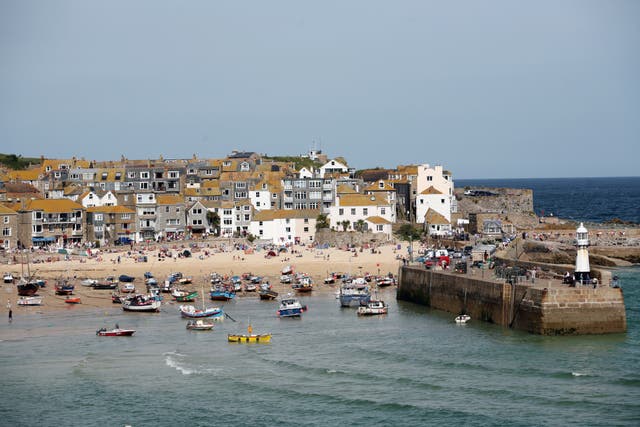Non-essential traffic has been banned from parts of St Ives to help with social distancing as tourists return to the town.
Hundreds of people are often seen walking down the Cornish town’s narrow streets during the busy summer months, causing “crushing onto the pavements” to allow vehicles to pass, according to councillors.
The town council said social distancing, even at ‘one metre plus’, would be “very difficult” to maintain during the tourist season.
A number of streets in the town will now be closed to non-essential traffic from 11am to 4pm each day until further notice.
There are exemptions for residents, carers, fishermen, emergency workers including the RNLI, and refuse collections.
Traffic Control Orders begin Monday 29 June 11am – 4pm.
Posted by St Ives Town Council Cornwall on Friday, June 26, 2020
In a statement posted online, St Ives Town Council said it was important to safeguard residents and visitors as lockdown measures were eased.
“The evidence is that the vast majority of people are still potentially susceptible,” it said.
“In short, if we lift all safety measures, we could be back to where we were in February.
“Many businesses in the town might not survive a second lockdown. That is why the best way to support the economy is by ensuring that the town is a safe place for local people and visitors.
“The streets in the town centre are narrow and, in the busy summer months, there are hundreds of people moving on foot.
“Even in a normal year, pedestrians are in conflict with vehicles, crushing onto the pavements to allow them to pass. It is very difficult to maintain social distancing even to one metre plus.”
All but essential vehicles will be removed from the busiest streets in the town to allow shoppers to move more freely and maintain social distancing more easily.

The council said this step was being taken in areas of “high footfall” in many towns and cities across the country.
In Cornwall, it’s taking place in the city of Truro, and towns including Falmouth and Newquay – many of which have wider streets than St Ives.
The restrictions, which came into force at 11am on Monday, will operate until further notice.
The council said they would be “monitored and evaluated each week during the crisis”.
It added: “We appreciate that this will cause some inconvenience. But we have tried to minimise this as much as possible.
“At the heart of this plan is the need to help minimise the risk of infection and to support our businesses by helping them to trade safely.”


















